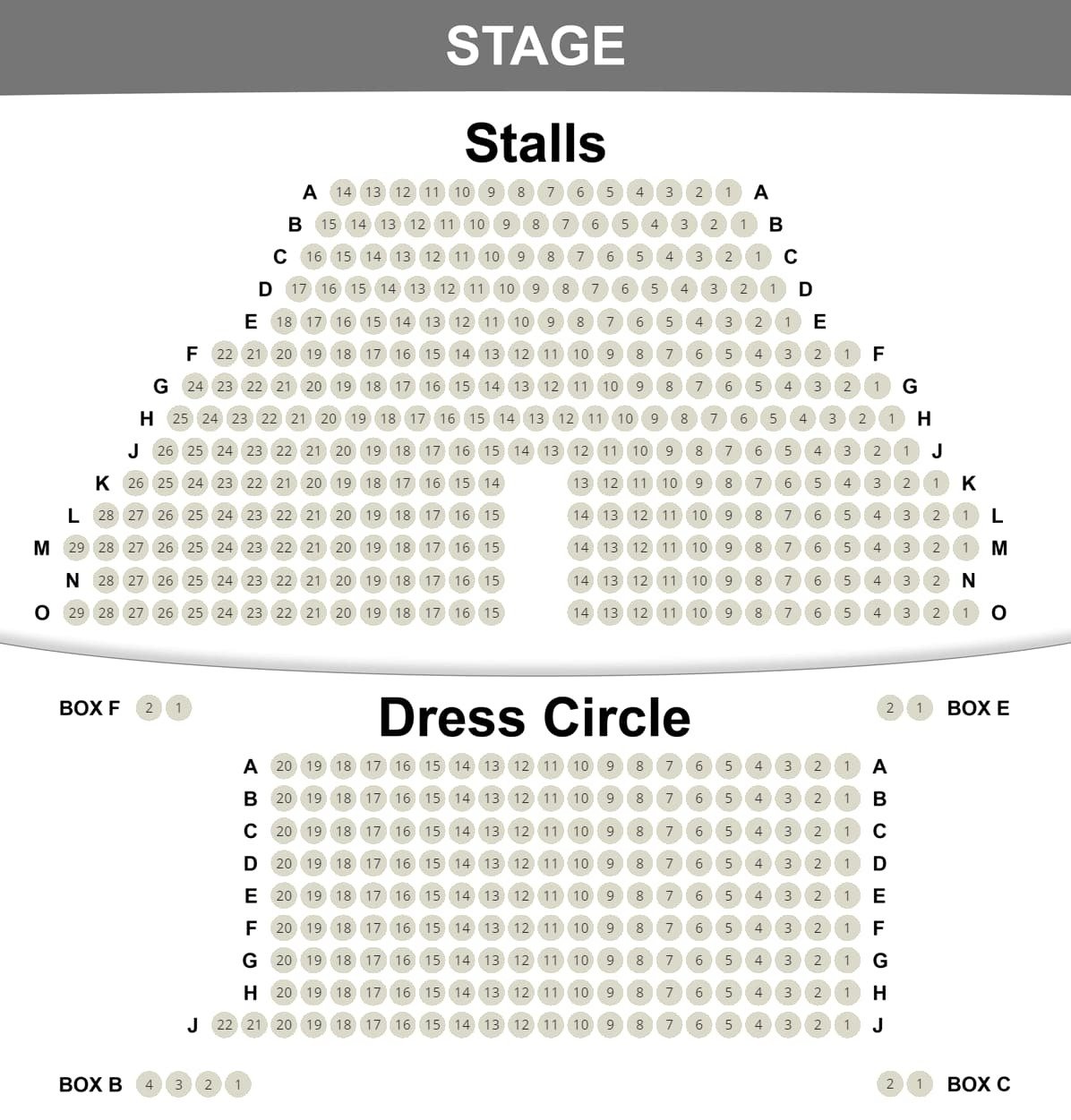Duchess Theatre best seats and seating plan
Posted on
| By
Hay Brunsdon
London's Duchess Theatre has been a hub of theatrical brilliance for decades. Since its opening in 1929, this historic venue has hosted numerous unforgettable performances, including notable long-running productions. With a cosy capacity of just over 475 seats, every show at the Duchess Theatre promises an intimate and engaging experience. If you're planning a visit to immerse yourself in the magic of the stage, selecting the ideal seat can significantly enhance your experience. To ensure you enjoy the best view of the captivating performances, read on to find out which seat will offer you the ultimate vantage point and make your afternoon or evening truly memorable.
What are the best seats at the Duchess Theatre?
The best seats at the Duchess Theatre depend on what you're looking for in your theatre experience, but generally, here are some recommendations:
Stalls
- Central Stalls (Rows C to G): These seats offer a fantastic view of the stage, with a great perspective on the actors and the action. The middle of these rows is particularly sought after.
- Front Stalls (Rows A and B): While very close to the stage, these seats provide an immersive experience but may require you to look up slightly. Great for those who enjoy being up close to the performers.
Dress Circle
- Front and Center (Rows A to C, Seats 6-16): These seats offer a wonderful view, elevated enough to see the entire stage without obstruction. Ideal for those who prefer not to be too close but still want a great view.
- Aisle Seats: Seats on the aisles in the Dress Circle provide additional legroom and easy access, which can be a bonus for comfort.
Grand Circle
- Front Rows (Rows A and B, Center Seats): These seats are higher up but still provide a good view of the stage. The elevation allows for a broader perspective of the performance.
Duchess Theatre seating plan

How many seats are at the Duchess Theatre?
The Duchess Theatre in London has a capacity of 479 seats. When compared to other West End theatres, it has just under a quarter of the number of seats found at Theatre Royal Drury Lane. It boasts a similar capacity to the Ambassadors Theatre and St. Martin's Theatre. While definitely on the smaller side compared to some other West End venues, it still offers a charming and intimate experience for its audiences.
Are there accessible seats at the Duchess Theatre?
The Duchess Theatre offers accessible seating options, including:
Wheelchair Spaces: There are dedicated wheelchair spaces in the Stalls. These spaces are designed to provide a good view of the stage and are accessible from the foyer.
Transfer Seats: For those who can transfer from their wheelchair to a theatre seat, the staff can assist in making the necessary arrangements. It's best to inform the theatre in advance to ensure these seats are available and assistance is ready.
To access the auditorium, there are 20 steps down to the Stalls and 11 steps up to the Dress Circle. Wheelchair users can utilise the AAT Major Stair Climber for entry. This stair climber accommodates manual wheelchairs up to 66 cm (26 inches) wide and 89 cm (35 inches) deep, including footrests. Electric wheelchair users might be asked to transfer into the theatre’s manual wheelchair upon arrival if their electric wheelchair is deemed unsuitable for the Stair Climber.
Access Facilities
- Entrance: The main entrance of the Duchess Theatre has level access from Catherine Street. The foyer and Box Office are also accessible.
- Accessible Toilet: There is an accessible toilet located close to the Stalls.
- Hearing Assistance: The theatre is equipped with an infrared hearing loop system for guests with hearing impairments. Headsets can be collected from the foyer.
- Assistance Dogs: Assistance dogs are welcome in the theatre. Staff can provide water for the dogs and arrange a location to leave them during the performance if preferred.
What show is on at the Duchess Theatre?
The Play That Goes Wrong is currently playing at the Duchess Theatre in London. This acclaimed comedy, famous for its uproarious blunders and chaotic scenes, has been entertaining audiences for more than ten years. The production centres on a traditional whodunnit story that goes hilariously off the rails, delivering a superb blend of physical comedy and slapstick humour.